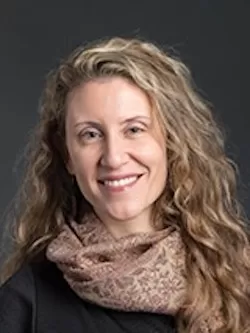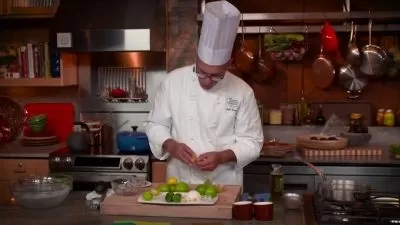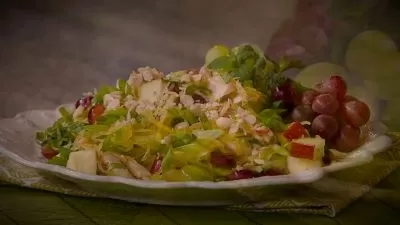Food, Science, and the Human Body
Alyssa Crittenden
17:52:55
Description
It may be a well-worn saying, but scientific data backs it up: You are what you eat. Not only that: You are what your earliest ancestors ate. In short, the story of humanity is inextricably linked to the story of food.
Throughout history, our evolution as a species has been inextricably linked to the foods we eat. It’s a relationship that goes back nearly 2.8 million years to our roots as hunters and gatherers. And it continues to the present day in the form of debates over good nutrition and the future of food on an overpopulated planet.
Food has led to the rise of epic civilizations. It’s shaped—and been shaped by—watershed moments in human history, from the dawn of animal husbandry to the industrial age of mass production to the 21st-century farm-to-table movement. Most importantly: It’s led to the amazing behavioral and nutritional flexibility of the bodies we have.
Understanding our current—and future—relationship with food warrants a look back in time to the roots of food and food culture, and its intersection with science.
- What foods did the human body evolve to eat, and why?
- Which foods changed the course of history, and how?
- How does the food we eat affect our genes and our minds?
- What foods are (and aren’t) optimal for our everyday health?
- Can we use cutting-edge science to end world hunger?
In Food, Science, and the Human Body, award-winning Professor Alyssa Crittenden of the University of Nevada, Las Vegas offers eye-opening answers to these and other perplexing questions about the evolution of the human diet and its relationship to our bodies. Bringing together insights from a range of fields including anthropology, biology, history, nutrition, health science, economics, and sociology, this exciting partnership between The Great Courses and National Geographic lays bare what science can teach us about food. Cutting through politics and separating myth from reality, these 36 lectures contain everything you need to know about everything you eat – and why you eat it.
A Multidisciplinary Approach
“We all spend countless hours thinking about, buying, preparing, consuming, and digesting food,” says Dr. Crittenden. “Our long evolutionary relationship with food is often hailed by anthropologists as one of the key milestones in human history.”
With its rich multidisciplinary approach, Food, Science, and the Human Body is designed to offer an even-handed, scientifically-based approach to the history and science of the human diet. Taking you far beyond the supermarket and the laboratory, these lectures offer a wider view of food. As you cross cultures, span time, and hop around the world from the most underfed to the most overfed human societies, here are some of the topics to consider along the way:
- The Paleolithic Dinner Plate: A lot of news coverage has been given to the Paleo Diet movement, but the idea is based on the misconception that it mimics the actual diet of the Paleolithic era. Data from bones, stones, and teeth reveal that our ancestors had no single diet and evolved to consume a generalized diet including plant and animal matter.
- Diets and Diseases: There is a deep connection between the evolution of the human diet and the rise of infectious and nutritional disease. For example, the second epidemiological transition in history, coinciding with the rise of industrialization, is characterized by a rise in chronic degenerative diseases like heart disease and diabetes.
- Time to Start Cooking: Roasting, boiling, and baking are invariably “human.” Archaeological evidence of cooking implements reveals much about how our ancestors cooked their food, and stress the idea of cooking as important to the way we eat. Cooking meat, in fact, made it easier to digest and eradicated harmful bacteria.
- More than Just Nutrition: From wine and beer to chocolate and spices, food has numerous social, cultural, and spiritual roots. Bread, for example, helped defined social status. The lightest bread was reserved for elites, while dark and heavy bread was for everyone else. Also, white bread was thought to be distinctly “American” in the early 20th century.
- Bizarre Foods: Not everything human beings eat is universally considered food. Entomophagy, the practice of eating bugs, has been around for most of human history. Placentophagy, the eating of the placenta by a mother, is still practiced. And eating psilocybin mushrooms for their hallucinogenic qualities dates back to the Aztecs.
- A World in Your Gut: Of all the body’s microbiomes, the gut has the greatest number of bacterial species that play a vital role in our health (from metabolizing our food to defending us from pathogens). Scientific data supports the idea that these gut microbes are “fellow travelers” in human evolution.
Pressing Questions and Concerns
Bringing a broad range of disciplines to these lectures, Dr. Crittenden makes Food, Science, and the Human Body an intriguing and illuminating catalog of some of the most pressing questions and concerns we have about what we eat, how we eat it, why we eat it, and how we’ll continue to eat it in the coming decades. Throughout the lectures, you will:
- Compare and contrast food-related crises in different parts of the world, from mass starvation to the obesity epidemic.
- Explore food trends and ideas, from the Mediterranean and MIND diets to the farm-to-table movement and the controversy surrounding GMOs.
- Examine how watershed moments in history, like agriculture and mass production, were both advantageous and disadvantageous to human diet and health.
- Bust common myths about how food acts on the body and mind, and come away with insights you can apply to your own everyday dinner plate.
Insights for When You’re Hungry
Dr. Crittenden has spent her entire career absorbed by the questions and issues examined throughout Food, Science, and the Human Body. “My fascination with the relationship between people and their food is one of the reasons that I’m teaching this course,” she says.
An anthropologist whose focus is on behavioral ecology and nutritional anthropology, Dr. Crittenden brings insights from her own research (among the Hadza hunter-gatherers of Tanzania) to these lectures. Her research has won multiple awards and has been published in top-tier journals and highlighted in magazines, including National Geographic and Smithsonian.
Plus, our partnership with National Geographic gives you access to a treasure trove of vibrant field photography, illustrations, timelines, maps, charts, portion diagrams, and other visual elements that add a wealth of understanding to a topic that stretches back millions of years.
This topic will continue to be of importance as long as human beings exist. And the information in Food, Science, and the Human Body will continue to resonate in your mind, every time you get hungry.
More details
User Reviews
Rating
Alyssa Crittenden
Instructor's CoursesDr. Alyssa Crittenden is an Associate Professor of Anthropology at the University of Nevada, Las Vegas, where she is also an Adjunct Associate Professor in the School of Medicine. She received her M.A. and Ph.D. in Anthropology from the University of California, San Diego.
Dr. Crittenden’s focus in anthropology is on behavioral ecology and nutritional anthropology. She does field research among the Hadza hunter-gatherers of Tanzania, East Africa. Her research interests include the evolution of the human diet, the evolution of childhood, and the origins of the division of labor between the sexes. Dr. Crittenden’s work crosses several disciplines, including anthropology, psychology, ecology, nutrition, and human biology.
Dr. Crittenden has received multiple awards for her research contributions, including the prestigious Nevada Regents’ Rising Researcher Award for 2017. Her research on the role of honey in human evolution and her work on Hadza diet and the gut microbiome have been widely published in both top-tier academic journals and highlighted in popular outlets, such as National Geographic magazine, Smithsonian magazine, and Psychology Today. Dr. Crittenden has also appeared on the BBC, on PBS and NPR, as well as in several documentaries. Her research among the Hadza was the basis of a TED Talk for EDxUNLV in 2016.

The Great Courses
View courses The Great Courses- language english
- Training sessions 36
- duration 17:52:55
- English subtitles has
- Release Date 2023/04/27











